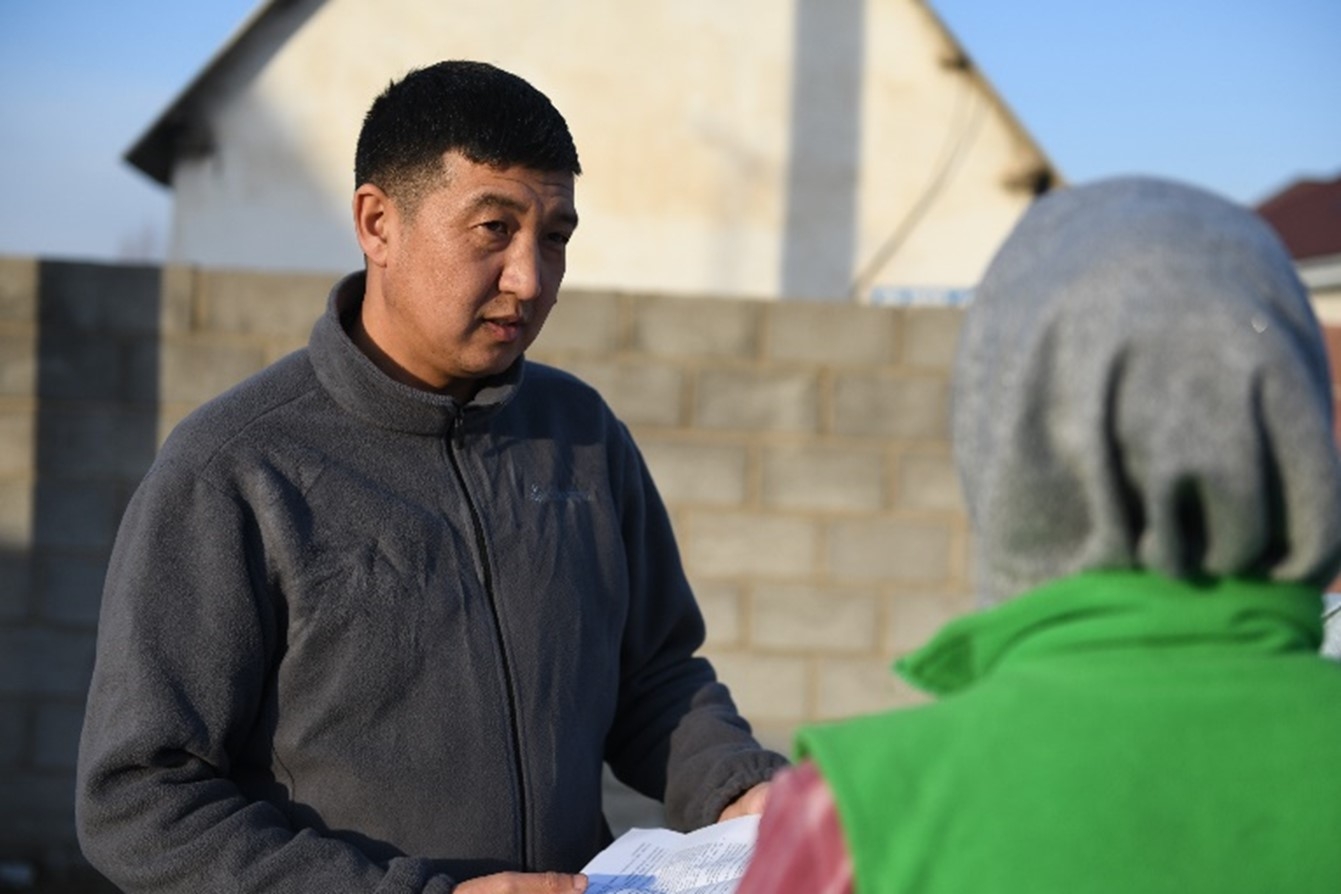During the COVID-19 pandemic, Kyrgyzstan faced the challenge of ensuring access to essential health services, including immunization, amidst the implementation of social and public health measures to control the spread of the virus. The disruption of immunization services resulted in the accumulation of susceptible individuals, increasing the likelihood of vaccine-preventable disease outbreaks. To address this issue, WHO Kyrgyzstan collaborated with the government to deploy mobile vaccination teams to reach unvaccinated individuals, particularly those living in informal settlements where accessing health and social services can be challenging. Between May-December 2020, mobile teams vaccinated 155 003 people with tetanus and diphtheria (Td) vaccine, and in 2021, an additional 171 161 people were vaccinated. This effort prevented outbreaks of vaccine-preventable diseases and reduced the burden on the already strained health system. Additionally, mobile teams provided vaccination against COVID-19, which further contributed to the prevention of outbreaks and saved countless lives.
Key WHO Contributions
Developing a comprehensive national vaccination campaign strategy in line with global guidelines
Establishing mobile immunization teams
Engaging village leaders to promote vaccination
Conducting regular monitoring visits.
How did Kyrgyzstan, with the support of the WHO Secretariat, achieve this?
With the aim of improving access to vaccines for vulnerable populations in Kyrgyzstan, WHO provided technical support to the government to develop a comprehensive national vaccination campaign strategy aligned with global guidelines. The strategy prioritized reaching people living in remote, hard-to-reach areas and children of internal migrants in large urban settlements. To tackle vaccine hesitancy and misinformation, the strategy also included engaging local leaders to promote vaccination within their communities.

Village leaders actively promoted COVID-19 and routine vaccination among villagers in Kyrgyzstan.
Photo credit: WHO Kyrgyzstan.
WHO's technical assistance proved critical in training mobile immunization teams and equipping them with disinfectants and Personal Protective Equipment, and was made possible through funding from Gavi, the vaccine alliance. WHO also played a pivotal role in setting up data systems and conducting data analysis, enabling district immunologists and public health services in remote areas to better plan the work of mobile teams and receive feedback from them on their needs. Teams were deployed to reach people in remote, hard-to-reach settlements, and were especially vital in vaccinating children of internal migrants living in large urban settlements.
“As time has shown, our decision to initiate the mobile vaccination teams was both timely and crucial. We extend our gratitude to the team for their unwavering dedication and professionalism”.
- Dr Shahin Huseynov, WHO Special Representative of the WHO Regional Director in the Kyrgyz Republic and Head of Office a.i.
To promote vaccination and counter vaccine hesitancy among communities, WHO worked closely with village leaders in a collaborative effort to build awareness about routine and COVID-19 vaccination. Village leaders, selected by their communities, actively promoted vaccination among villagers and were equipped with risk communication products such as leaflets and posters provided by WHO. Through these materials, leaders were able to counter myths and misinformation and encourage community members to attend vaccination sessions organized by mobile immunization teams. Recognizing the critical role that religious leaders play in shaping community beliefs and attitudes towards vaccination, WHO recommended that national partners engage them to deliver sermons and provided guidance on how to do so. Their involvement was found to be particularly important in building trust and removing doubts and fears among communities. Through this collaborative approach, local leaders were able to encourage their communities to take advantage of vaccination opportunities in line with the national immunization schedule and COVID-19 vaccination.
“COVID-19 vaccine hesitancy has been a real challenge amid all the rumors and disinformation about the vaccine. The reluctance stems partly from myths such as the pandemic being a foreign conspiracy, plus cultural and religious beliefs”
- Village leader of a new settlement near Bishkek, Kyrgyzstan
Since the onset of the COVID-19 pandemic, the WHO Country Office and the Republican Center for Immunoprophylaxis in Kyrgyzstan have worked tirelessly to ensure the safe and effective administration of vaccines across the country. In order to monitor the vaccination process, regular visits were conducted by monitoring teams to mobile immunization sessions in the field. The teams found that all required infection prevention and control measures were strictly followed, ensuring that vaccines were being administered safely and effectively to those who needed them the most.
A coordinated, multi-stakeholder approach has been vital for the success of the implementation of the vaccination strategy in Kyrgyzstan. WHO recognizes the importance of sustained efforts in promoting vaccination and addressing vaccine hesitancy, and is committed to continuing to coordinate with partners to support mobile vaccination teams in Kyrgyzstan to ensure equitable access to vaccines.

